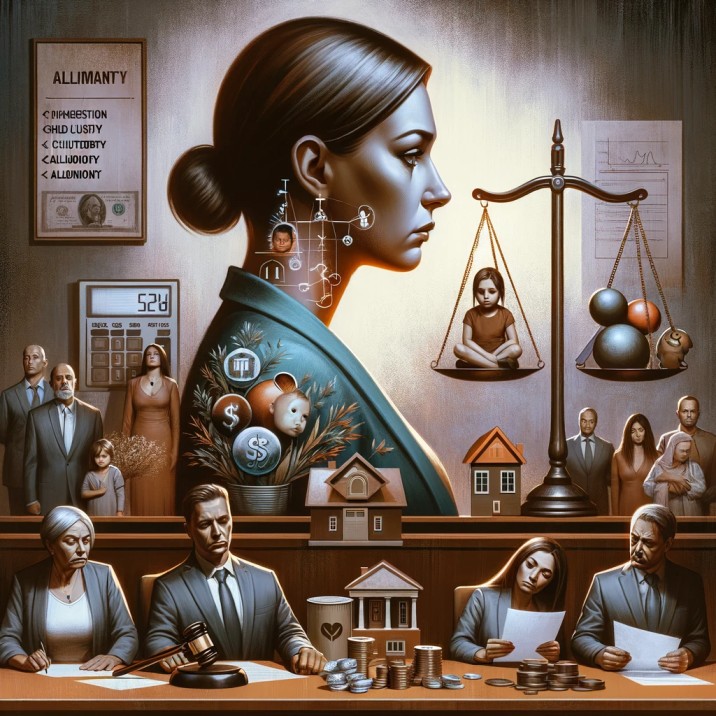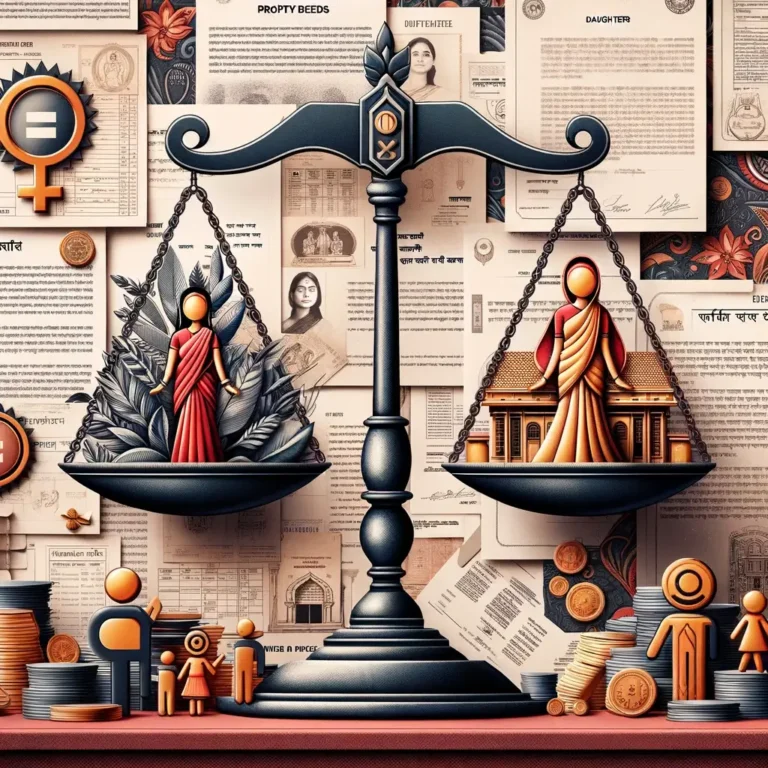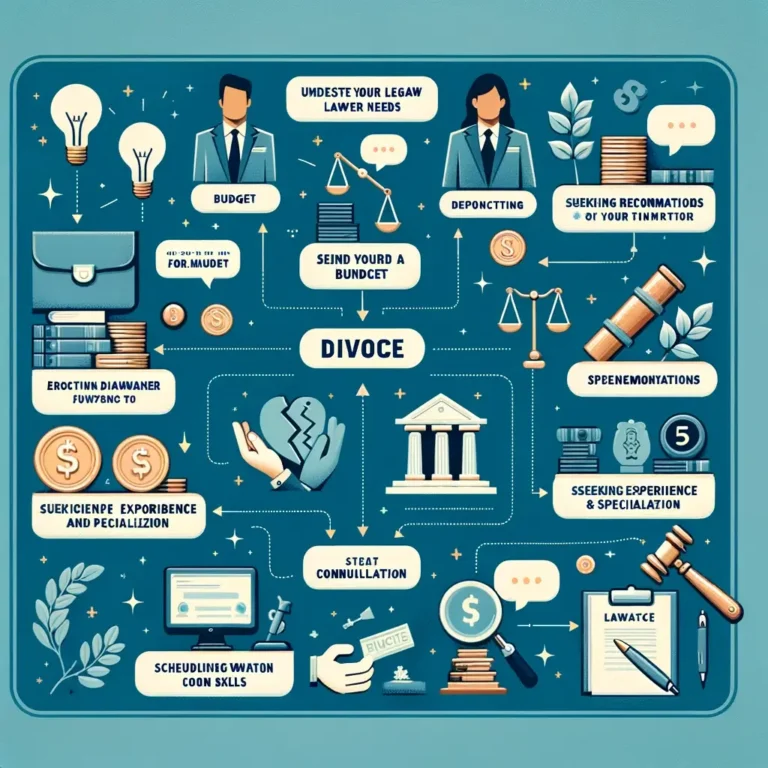Introduction: Understanding the Need for Specialized Legal Support

In the intricate and often emotional journey of divorce, women face unique challenges and complexities. Recognizing the need for specialized legal support, this article delves into the role of a divorce lawyer for women, highlighting their importance in navigating the legal system, protecting rights, and offering tailored advice for women undergoing this significant life transition.
Divorce Lawyer for Womens: Why Women Needs Divorce Lawyer ?
Section 1: Legal Challenges Faced by Women’s in Divorce

Financial Implications and Asset Division
Divorce can have profound financial implications, especially for women. A divorce lawyer for women focuses on fair asset division, ensuring that women receive their rightful share, considering factors like non-financial contributions to the marriage and future financial security.
Protecting Child Custody and Parental Rights
In cases involving children, custody becomes a crucial aspect. A skilled lawyer aids in negotiating custody arrangements that prioritize the children’s well-being, while also safeguarding the mother’s parental rights.
Understanding Alimony and Child Support
Alimony and child support are critical elements of divorce settlements. A knowledgeable lawyer will work to ensure that these payments are fair and reflective of the financial realities of both parties.
Section 2: The Emotional Aspects of Divorce for Women

Navigating Emotional Turbulence with Professional Support
Divorce can be an emotionally taxing experience. A divorce lawyer for women is not just a legal advisor but also a source of emotional support, offering guidance and understanding throughout the process.
Building a Support System: Collaborating with Counselors and Therapists
Often, lawyers collaborate with counselors and therapists to provide comprehensive support to their clients, addressing both legal and emotional needs.
Section 3: Empowering Womens Through Legal Expertise of Divorce Lawyer

Advocating for Women’s Rights and Interests
A divorce lawyer for women stands as an advocate, ensuring that their client’s rights and interests are fiercely protected in court and in negotiations.
The Importance of Informed Decision-Making
Empowering women through informed decision-making is a cornerstone of a divorce lawyer’s role. They provide the necessary information and advice to help women make choices that are in their best interests.
Section 4: Choosing the Right Divorce Lawyer for Womens

Criteria for Selecting a Lawyer
Selecting the right lawyer is crucial. This section provides criteria such as experience, specialization in women’s divorce issues, communication skills, and empathy.
The Consultation Process: What to Expect
Understanding the consultation process helps in preparing for the initial meeting with a lawyer. This subsection can detail what documents to bring, questions to ask, and what to expect from the consultation.
Conclusion: Your Partner in Navigating Divorce

A divorce lawyer for women is more than just a legal representative; they are a partner in navigating one of life’s most challenging transitions. By understanding the unique challenges women face during divorce and choosing a lawyer equipped to address these issues, women can find the support and guidance necessary to emerge from this process empowered and ready for a new chapter.
Final Thoughts: Empowerment Through Knowledge and Support
In summary, a divorce lawyer for women is essential in ensuring legal rights are protected, financial and parental interests are safeguarded, and emotional well-being is supported. This specialized legal assistance empowers women to navigate the divorce process with confidence and resilience.
You can also read : Rights of married Women
FAQ: Divorce Lawyer for Women
- Why do women need a specialized divorce lawyer?
Answer: Women often face unique challenges in divorce, such as unequal financial footing, child custody concerns, and emotional complexities. A specialized divorce lawyer understands these challenges and can provide tailored legal support.
- How does a divorce lawyer for women help with asset division?
Answer: They ensure fair distribution, considering factors like career sacrifices, non-financial contributions, and future financial needs.
- Can a divorce lawyer help me get alimony?
Answer: Yes, they can negotiate alimony based on factors like marriage duration, financial disparity, and future earning potential.
- What role does a lawyer play in child custody?
Answer: They advocate for custody arrangements that prioritize children’s well-being while protecting maternal rights.
- How do I choose the right divorce lawyer?
Answer: Look for experience, specialization in women’s divorce issues, good communication skills, and a supportive approach.
- What should I expect during the initial consultation?
Answer: Expect to discuss your case, understand legal options, and learn about the lawyer’s approach and fees.
- How does a divorce lawyer support a woman’s emotional needs?
Answer: They provide empathetic guidance and can refer clients to counselors or therapists for additional support.
- Are divorce lawyers for women more expensive?
Answer: Not necessarily. Fees depend on the lawyer’s experience and the case’s complexity, not gender specialization.
- How long does the divorce process take?
Answer: It varies, depending on case complexity, cooperation level, and legal system backlog.
- What is the difference between legal separation and divorce?
Answer: Legal separation involves living apart without ending the marriage legally, while divorce legally dissolves the marriage.
- Can a woman receive child support after divorce?
Answer: Yes, the non-custodial parent typically pays child support to the custodial parent, regardless of gender.
- How is spousal support determined?
Answer: It’s based on income disparity, duration of marriage, age, health, and future earning capacity of each spouse.
- What if my ex-partner isn’t paying alimony or child support?
Answer: A lawyer can help enforce payment through legal means like court orders.
- Can I change my divorce lawyer if I’m not satisfied?
Answer: Yes, you have the right to change lawyers if you feel your needs are not being met.
- How are debts divided in divorce?
Answer: Debts are typically divided equitably, considering who incurred them and their purpose.
- Do I need a lawyer for an uncontested divorce?
Answer: While not mandatory, it’s advisable to ensure your rights are protected.
- Can I get divorced without going to court?
Answer: Yes, through alternatives like mediation or collaborative divorce.
- How can I protect my business in a divorce?
Answer: Legal strategies include prenuptial agreements and fair valuation methods.
- Will I lose my retirement savings in the divorce?
Answer: Retirement assets are subject to division, but the split depends on factors like contribution and marriage length.
- Can I get sole custody of my children?
Answer: Sole custody is granted based on children’s best interests, considering factors like safety and stability.
- How is child visitation arranged?
Answer: Visitation schedules are typically part of the custody arrangement, considering the child’s needs and parents’ circumstances.
- What if my ex-partner wants to relocate with the children?
Answer: This requires legal modification of custody arrangements, considering the impact on the child.
- How is property divided in divorce?
Answer: Property is divided equitably, considering factors like contribution to the marriage and each party’s needs.
- Can a divorce decree be modified?
Answer: Yes, modifications can be made for changes in circumstances, like income changes or relocation.
- How do I prepare financially for divorce?
Answer: Gather financial documents, understand assets and debts, and plan for future expenses.
- What if my spouse is hiding assets?
Answer: A lawyer can help uncover hidden assets through discovery processes.
- Can a prenuptial agreement affect my divorce?
Answer: Yes, it can dictate asset division and spousal support, unless deemed unfair or invalid.
- How does adultery impact divorce proceedings?
Answer: It varies by jurisdiction but can affect alimony and asset division in some cases.
- What are my rights if I’m a stay-at-home mom?
Answer: You have rights to fair asset division, alimony, and child support, considering your contributions and future needs.
- How does domestic violence affect divorce?
Answer: It can impact custody decisions, spousal support, and may lead to protective orders.
















